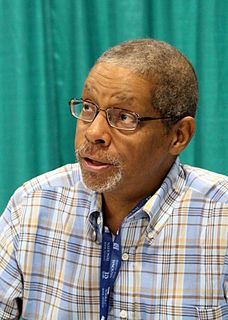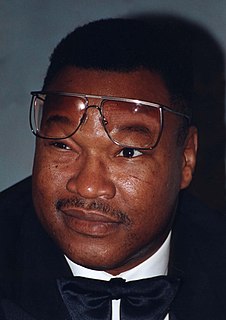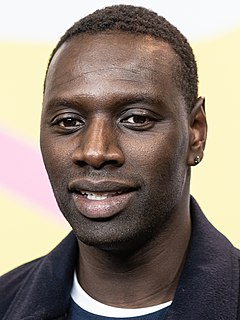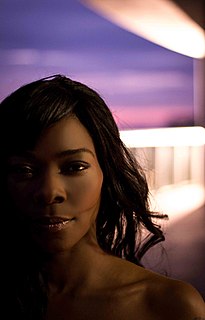A Quote by Stephen Carter
I think that black fiction authors have to work very hard to avoid being typed as seeking only a black audience.
Related Quotes
I felt like it was a courageous show [Black-ish] from the beginning. We are a black family - we're not a family that happens to be black. But the show is not even about us being black. The show is about us being a family. That is groundbreaking - on TV, the black characters either happen to be black or they're the "black character," where everything they say is about being black. I think that's the genius.
It's very necessary, showing the positive aspect of a black father. We see a lot of black women being the head of the household and holding the house down, but I think we need to have those images because there are black fathers out there who are doing the same thing and who are the glue to the family. That's who Black Lightning is.
I never thought about being the first black actor to win, even though everybody else talked about that. If I stop to think as a black actor, people will see me differently. If I play as a black actor, people will only see that. I think my key was to perform as an actor, not as a black actor. And after winning the Cesar, I was an actor with a Cesar. there are many more adjectives to describe who I am. I'm not only black.
I think people respond to truth. 'Straight Outta Compton' made $60 million over the weekend, right? That's not just a black audience. 'Empire' grew every single week. That's not just a black audience. Black culture is American culture, you know what I mean? They're becoming more and more one in the same.
As a black person on the outside, because there's so much black art and so much of black people's work circulating, so many people imitating what black people do, you would think that there'd be more black people on the business side. It didn't cross my mind that every label head, for the most part, is a white guy.
Black males who refuse categorization are rare, for the price of visibility in the contemporary world of white supremacy is that black identity be defined in relation to the stereotype whether by embodying it or seeking to be other than it…Negative stereotypes about the nature of black masculinity continue to overdetermine the identities black males are allowed to fashion for themselves.
I understand how difficult it can be for an African-American in today’s society. In fact, I can relate to black people very well indeed. My ancestors once owned slaves, and it is in my lineage to work closely with the black community. However, just because they were freed over a century ago doesn’t mean they can now be freeloaders. They need to be told to work hard, and the incentives just aren’t there for them anymore. When I’m president I plan to work closely with the black community to bring a sense of pride and work ethic back into view for them.







































